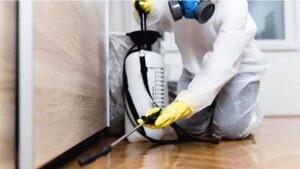Building Stage Inspections for Quality Assurance
When building a new home or investment property there are many things that can go wrong during construction and issues not picked up along the way can cause big problems later. Independent Building Stage Inspections or Quality Assurance Inspections by a qualified and licensed building expert during construction are the best way to ensure everything in your home is of the appropriate quality and is built in accordance with Australian Building Codes and Standards.
All Suburbs Building Inspections and Reports are here to support you every step of the way by providing Quality Assurance inspections and professional advice to assist you during the entire building process, from start to practical completion and beyond, to help you make informed choices and give you peace of mind.
Get in touch with our team
Don’t risk overlooking major issues with your new home or business. As one of the most important and expensive investments of your life, you’ll want to make sure your property not only ticks all of your boxes but is safe for your family/workers and is built in a way that will stand the test of time. With a range of inspection options available, you can tailor a service to suit your needs and cover the areas of highest concern.
If you would like to learn more about our building stage inspections, our process, or to have a chat about what you need for your next property, please get in touch with our friendly staff.
Building Stage Inspections recommended by ASBIR
Pre-Pour Stage Slab Inspection
Inspection of footings and slab area prior to pouring of concrete.
Frame Stage Pre-Plaster Inspection
Enclosed / Lock-up Stage
Fixing / Pre-Paint Stage
Inspection after installation of internal fixtures and fittings, interior and finishing of carpentry prior to painting.
Practical Completion (PCI) / Pre-Handover Inspection
Inspection of the completed home for defects and omissions in accordance with the Australian Standard at Practical Completion.
End of Warranty
Inspection of the completed home for defects that have arisen since Handover.
You decide which Construction Stage Inspections you want
You may wish to book any of these building stage inspections individually or as a package, whatever best suits your individual needs. These construction stage inspections provide a report on the condition of the home at various building stages, which generally coincide with the builders’ progress claims.
You decide which construction stage inspections you would like to have carried out. You can choose to have ALL the Stage Inspections, or only those you are concerned about. In any case a Frame Stage Inspection, a Handover Inspection or PCI at Practical Completion and an End of Warranty Inspection are considered essential for all homeowners and property investors!
Why independent Quality Assurance Inspections are so important
A new home is a large investment and the whole building process is generally an emotionally stressful time for the new home owner or property investor. An independent building stage inspection of your new home or investment property at various stages of construction ensures the quality of workmanship and enables any defects to be identified for rectification. Identifying defective workmanship or contractual anomalies during construction can help avoid problems and building disputes down the track.
Certain defects need to be identified at the correct stage in order to be easily rectified, for example, if wall framing isn’t square & plumb before it gets covered up by insulation and plasterboard it is significantly more difficult and costly to rectify these defects. This can often have a flow-on effect that can impact on other things such as walls and ceilings being bowed, or tiling being out of square. No-one wants to live in a house and have to look at these kinds of defects every day, just wishing they had been picked up early and rectified.
Benefits of Independent Building Stage Inspections
Building Stage Inspections can most often be done without having to delay the construction schedule. This can takes some coordinating and requires cooperation from the builder and other relevant parties. It is important for you to let your builder know at the start of the build that you are planning to engage an independent expert to conduct inspections on your behalf at various building stages.
There is no reason for there to be any issues having these inspections arranged if everyone knows what is expected and there is open communication. In our experience we have found that a lot of builders welcome an independent inspection, as it provides a second pair of eyes going over their work to scrutinize it for any defects, which ultimately helps them achieve an end product of the highest quality, as well as happy homeowners.

What can be better than having your very own ASBIR building expert, working for YOU and looking after YOUR interests, by carrying out building stage inspections during construction and prior to handover of your new home?
Australian Building Codes and Standards
New homes must be constructed in accordance with certain Australian Building Codes, Standards and Tolerances, as well as local authority requirements. If you are buying a recently constructed investment property or having a new home built for you by a licensed builder you should understand that these codes are the acceptable standards required by law for the health and safety of future occupants.
Lending authorities, Council inspectors and certifiers only check the building for their own specific requirements, they are not checking to make sure everything is being built with a high quality of workmanship, materials and finishes.
Meeting the minimum standards does not necessarily ensure quality, because workmanship and final finishes are not a factor that is considered during inspections by certifiers for code compliance. That is why an inspection by a Building Certifier does not mean the final quality of the completed home including any fixtures and fittings are checked.
Often an assumption of quality can be generally be based on the builder’s reputation, quality is largely dependent on the professionalism of the subcontractors that work on the home or building on any given day and also how experienced and efficient the person is who supervises their work.
That is why it is important to engage the services of an independent building inspector to carry out quality assurance inspections.
Why only a licensed Building Inspector should do your Quality Assurance Inspection
When choosing a building inspector to conduct Quality Assurance inspections on your new home or investment property it is important to not only look at their level of experience and their qualifications, but most importantly you need to know that they are fully licensed to carry out your inspection.
On rare occasions builders will try to talk property owners out of having independent building stage inspections, saying that they do their own quality control. You should be wary of anyone who would discourage you from having an independent building inspector carry out an inspection on your behalf. In fact, one of the signs of a good builder is that they are quite happy to have the extra pair of eyes of another building expert to carry out an independent assessment for the owner and provide a list of defects and incomplete work require rectification.
We also come across homeowners who decided to try and save some money and thought they did not need to engage the services of an independent inspector, and who have later regretted this decision because they later found defects or other issues that they could no longer have addressed by the builder because the defects weren’t noted prior to handover.
Some homeowners have asked a friend or family member who is ‘in the building industry’ to check the property over for them or sometimes their property manager will offer to do a Handover Inspection or PCI when they list the property for rent with them. While this might seem like a good thing, it can lead to many problems. While real estate agents generally are good at selling and renting properties most of them are not building experts and therefore also not licensed or insured for carrying out building inspections. So our advice is always that it is not worth the risk for the few hundred dollars you may save, as it could end up being a very expensive exercise in the end if something is to be missed.
Fully LicenCed and Insured Building Inspectors
The Queensland Building and Construction Commission or QBCC (formally QBSA) has very stringent processes, policies and procedures that must be strictly complied with and adhered to in order to be allowed to perform building inspections as a licenced Builder and Completed Residential Building Inspector.
It is also important for your protection and peace of mind to know that your building inspector is fully insured. All Suburbs Building Inspections and Reports “ASBIR” inspectors are highly experienced, qualified, and fully licenced. We are also fully insured with Public Liability and Professional Indemnity Insurance.
Other Inspection Reports ASBIR provide for new homes
Inspection to compare the Contract Specifications and Inclusions against what has actually been installed by the Builder.
We often do a Contract Inclusions Check for clients who live interstate or overseas and are not able to visit the property to check that the inclusions are per the contract.
A 2nd Inspection at any stage to check if defects noted in the Report have been satisfactorily rectified prior to moving on the the next stage.
We conduct re-inspections or 2nd inspections if required when we have done an inspection where defects were noted, so we can check if they have been rectified.
Inspection for defects prior to the expiry of the Defects Liability Period and for the 6 year building structural warranty.
We recommend a Maintenance Inspection prior to expiry of the warranty period or Defects Liability Period, which is generally 6 months but in some cases 12 months.
Inspection for Termites for the purpose of checking the termite barrier, which is required so as not to void the warranty.
We recommend an Annual Termite Inspection for every property as part of the 6 year structural warranty for new homes as termite barriers come with a warranty.
Inspection every 12 months to identify any maintenance issues to may not be apparent at routine inspections by the agent.
We recommend Annual Maintenance Inspections for every property so that any problems can be fixed and that the property can continue to appreciate in value.


